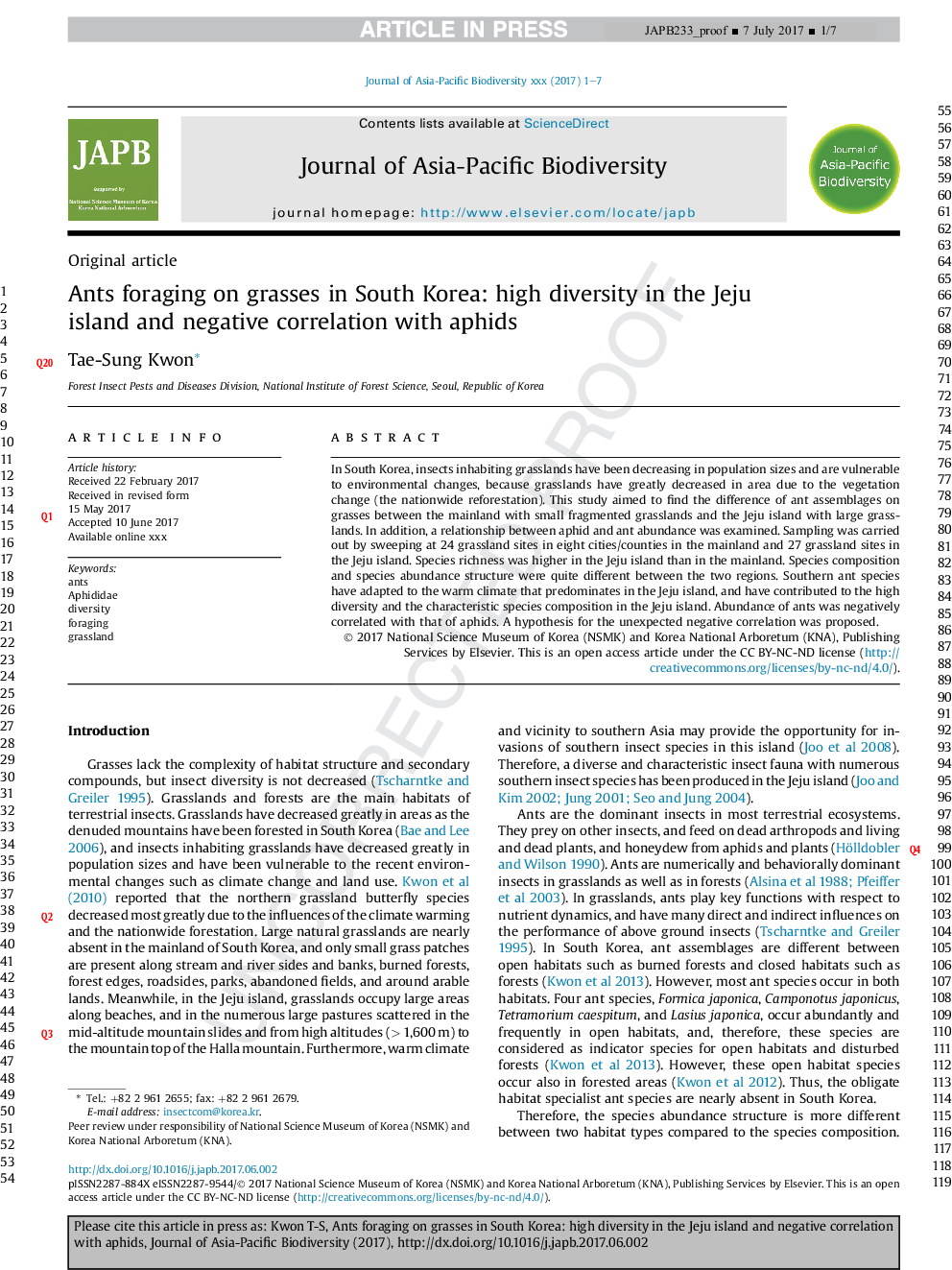| Article ID | Journal | Published Year | Pages | File Type |
|---|---|---|---|---|
| 8848708 | Journal of Asia-Pacific Biodiversity | 2017 | 7 Pages |
Abstract
In South Korea, insects inhabiting grasslands have been decreasing in population sizes and are vulnerable to environmental changes, because grasslands have greatly decreased in area due to the vegetation change (the nationwide reforestation). This study aimed to find the difference of ant assemblages on grasses between the mainland with small fragmented grasslands and Jeju Island with large grasslands. In addition, a relationship between aphid and ant abundance was examined. Sampling was carried out by sweeping at 24 grassland sites in eight cities/counties in the mainland and 27 grassland sites in Jeju Island. Species richness was higher in Jeju Island than in the mainland. Species composition and species abundance structure were quite different between the two regions. Southern ant species have adapted to the warm climate that predominates in Jeju Island, and have contributed to the high diversity and the characteristic species composition in Jeju Island. Abundance of ants was negatively correlated with that of aphids. A hypothesis for the unexpected negative correlation was proposed.
Related Topics
Life Sciences
Agricultural and Biological Sciences
Ecology, Evolution, Behavior and Systematics
Authors
Tae-Sung Kwon,
